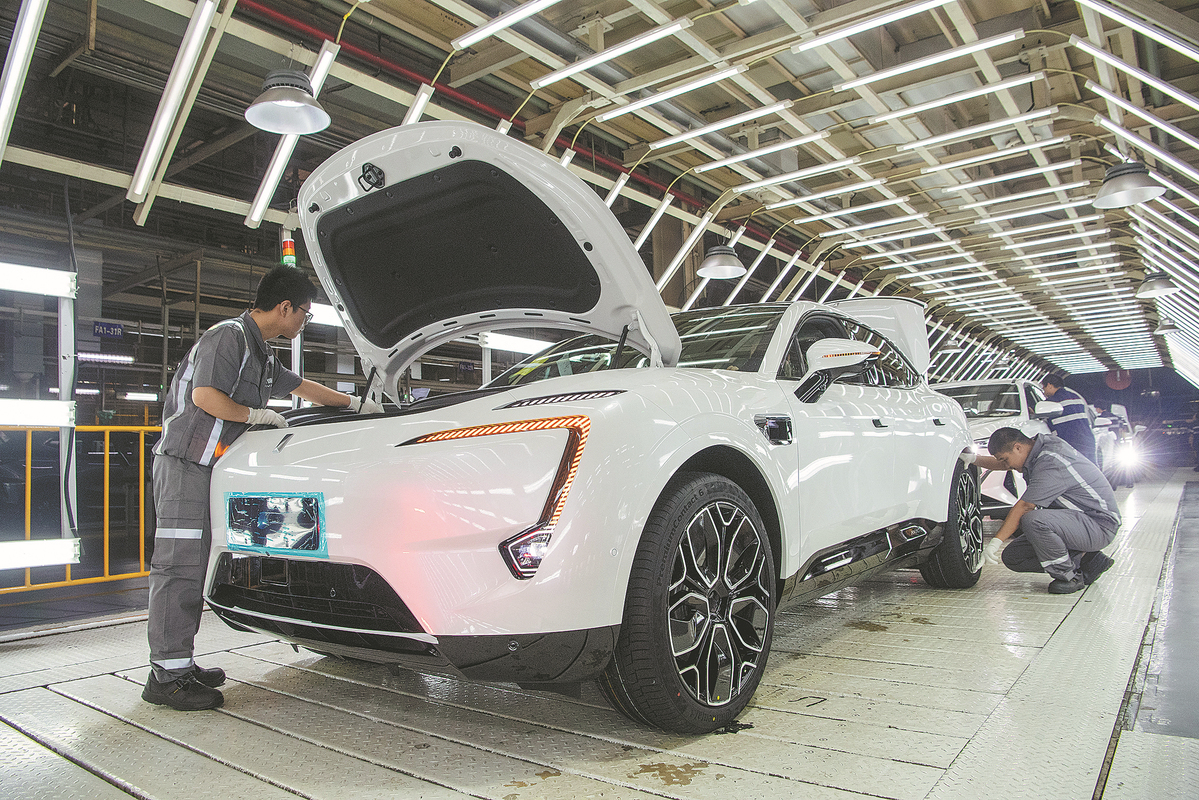NEV brands need to accelerate internationalization
China Daily | Updated: 2024-02-22 07:31

The United States is mulling restricting imports of Chinese smart cars and related components by nontariff means. And the European Union has launched an anti-subsidy investigation into the imports of electric cars from China.
The moves are against the law of the market and harm fair competition. Division of labor and mutually beneficial collaboration are distinctive features of the auto industry chain. The leapfrog development of China's auto industry has provided cost-effective products with high quality to the world. It should be seen that every one in three exported automobiles from China, 4.91 million units last year to be precise, is an electric car, which contributes significantly to the world's green and low-carbon transition.
These moves of the US and the EU, which also damage their own interests, should prompt the Chinese new energy vehicle manufacturers and automakers to further increase their input in research and development and enhance their management and marketing efficiency at home and abroad.
Chinese companies are the main innovators in the NEV industry in the world today. Competition in the domestic NEV market is about technology rather than price. The NEV industry, characterized by electrification and intelligent technology, is a new track for the automotive industry, which means there are potential opportunities for all participants, including traditional auto parts companies.
The core of the NEV industry is electric systems, intelligent software and various sensors. In order to control the autonomy of relevant technology iteration, many car manufacturers emphasize full-stack self-research or full-stack self-control. This will be a long-term process featuring quick technological iteration and fierce competition.
The Chinese NEV manufacturers can subsidize their R&D with more profits from the foreign market so as to avoid brutal price competition. The Chinese NEV companies should take advantage of the window of opportunity created by their technological and price advantages over foreign competitors to vigorously promote their internationalization strategies and strive for a larger global market by setting up factories overseas and increasing exports.
That can also help them shun the unfair China-targeted trade restriction measures of some developed economies.
























